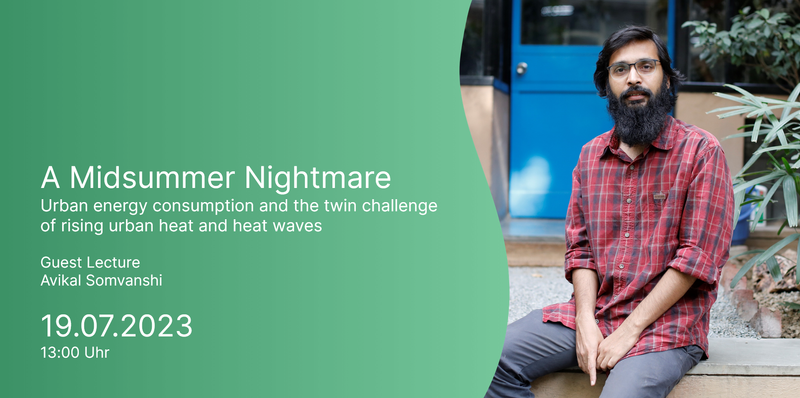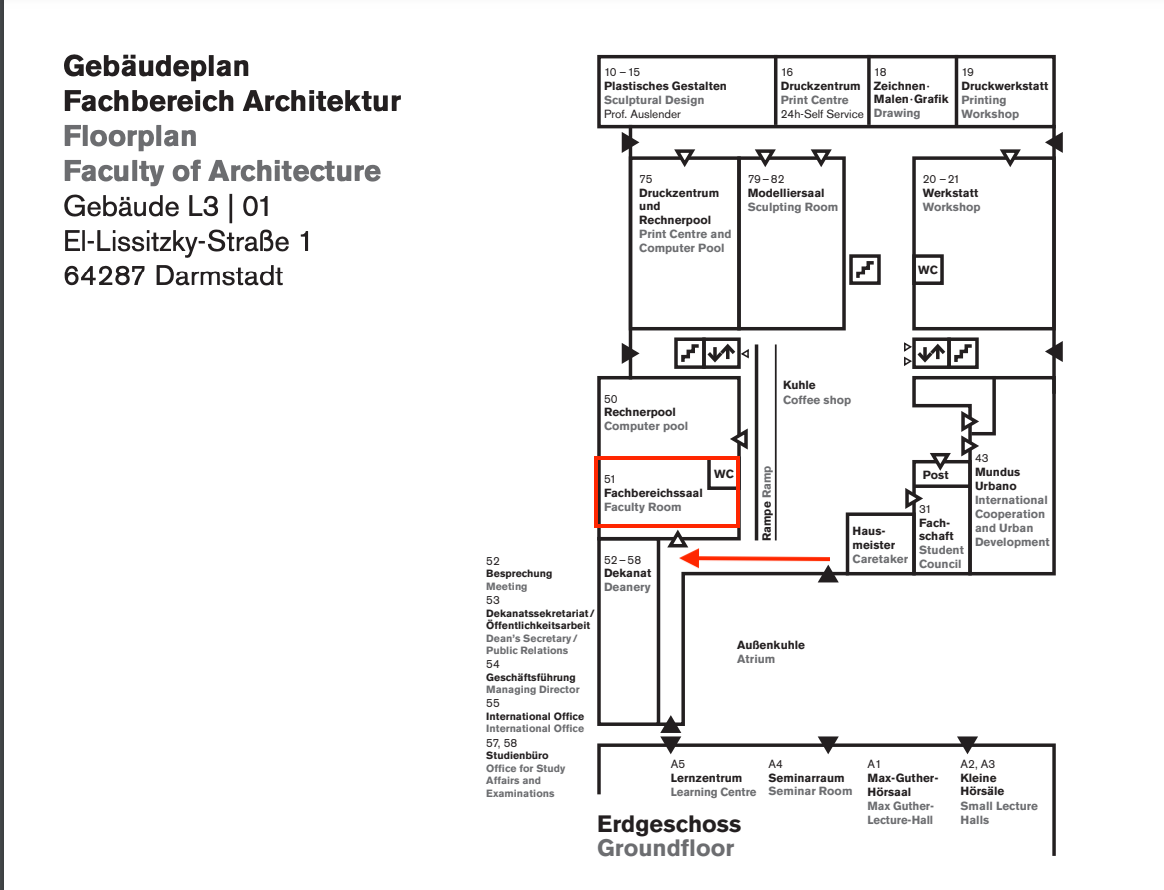Guest Lecture on Heat Waves and Electricity Infrastructure in Cities of the Global South and North
emergenCITY guest researcher Avikal Somvanshi will speak on 19 July at 1 p.m. at TU Darmstadt’s Lichtwiese campus
emergenCITY guest researcher Avikal Somvanshi will speak on 19 July at 1 p.m. at TU Darmstadt’s Lichtwiese campus

At the invitation of emergenCITY-PI Annette Rudolph-Cleff, Indian environmental activist and renowned scientist Avikal Somvanshi, head of the Urban Lab at the Centre for Science and Environment in New Delhi, will spend July in Darmstadt to exchange ideas with emergenCITY researchers.
Somvanshi’s research has a strong focuses on understanding the adaptive thermal comfort among tropical populations and leveraging it as a tool to build climate resilience among cities in the global south. Beyond his academic work that is based on an academic background in Applied Urban Data Science and architecture, Somvanshi is also actively engaged in getting research findings noticed in national policies of India. He is a member of several national and international committees on sustainable design and habitat issues, including the Bureau of Indian Standards, as well as a jury member for the 2019 Berkeley Prize Essay Contest.
Somavanshi’s current research includes measuring the impact of environmental heat events on electricity consumption in New Delhi to assess energy and thermal comfort performance of the city‘s building stock. Somvanshi will present this work on Wednesday, 19.07. at 1 p.m. with the lecture “A midsummer nightmare - Urban energy consumption and the twin challenge of rising urban heat and heat waves” and invites interested parties to exchange ideas in the Faculty Hall of the Department of Architecture.
The starting point for Somvanshi’s presentation is the challenge to electricity infrastructure posed by the increasing spatial and temporal spread of heat waves. These increase as well the demand for electricity and not only complicate the decarbonisation of the power sector: Any disruption to electricity infrastructure also has such cascading effects that entire cities and regions may shut down. Although these are worldwide problems, their impact will be differentiated by the infrastructural legacy of cities, the climate zone within which they are housed and the socioeconomic backgrounds of people living in them. In the temperate regions of the world, urban electricity infrastructure has universal coverage but is not designed for the imminent intense heat conditions. On the other hand, in the tropical and subtropical regions, urban electricity infrastructure has relatively better heat exposure but lacks universal coverage and is prone to non-heat related breakdowns. Thus, while the adaptation and resilience strategies to be developed against the risk of heat stress for urban systems also differ between cities in the global North and South, there is a tremendous opportunity for mutual learning through the different starting points.
Wednesday, 19.07.2023, 13.00 Uhr
Avikal Somvanshi Centre for Science and Environment, New Delhi, India “A midsummer nightmare - Urban energy consumption and the twin challenge of rising urban heat and heat waves”
Fachbereichssaal El-Lissitzky-Straße 1, 64287 Darmstadt; L3|01/51
